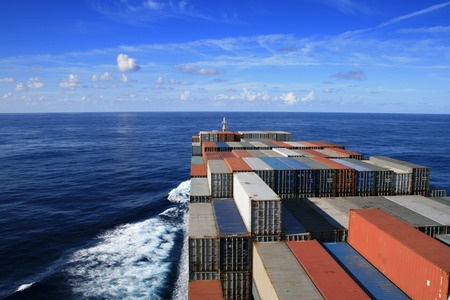European Shippers’ Council says the use of such an instrument is ‘unjustified’ and highlights their ‘almost simultaneous’ introduction by container lines.
The European Shippers’ Council (ESC) has written to the European Commission to highlight its concerns about the wave of emergency bunker surcharges (EBSs) recently applied by container lines, arguing that their “almost simultaneous” introduction was “tantamount to price signaling”.
In a letter sent yesterday to EU Commissioner for Competition Margrethe Vestager, ESC Secretary General Nik Delmeire said the ESC had been informed by its members that most of the largest container liner companies had increased their freight rates as of 1 June by adding an emergency bunker surcharge to the normal freight rate.
“Under the present circumstances, the use of such instrument is unjustified,” he said. “Oil prices had indeed been rising during the last month, but the latest hike cannot be assimilated to an emergency. Oil price fluctuations, up or down, had been frequently happening in the past years and no negative surcharge was applied when the barrel of oil went down to 40 US$ some time ago.”
He claimed that the application of any emergency surcharge “should be reserved for events that cannot be foreseen ? such as a crisis influencing the availability of oil. In those situations, it would be unreasonable to have the carrier bear alone the impact on the price of bunker fuel.”
But under the present circumstances, he said the carrier “can use a specific clause which exists in many contracts, except for all-in rates type of contracts or spot contracts, to revise the freight rates accordingly. Including such a clause in the contract is part of the negotiating process between the parties.”
If such a clause is not provided for in the contract in force, the price should remain the same until the contract is completed, he stressed.
“The fact that the container liners, who announced that they would apply such a surcharge, have been doing it almost simultaneously is, from ESC’s point of view, tantamount to price signaling, and therefore, is in contradiction with the spirit of the GRI commitment which liners agreed upon with the European Commission two years ago.”
This was a reference to a commitment by 14 container liner shipping companies “to increase price transparency for customers and to reduce the likelihood of coordinating prices by ending the practice of publishing and communicating General Rate Increase (GRI) announcements, i.e. changes to prices expressed solely as an amount or percentage of the change, along with several other measures to improve price transparency”. This commitment was given legal force by a Commission Decision on 7 July 2016.
Delmeire continued: “The current potential sign of restricted competition is also given at a time when the European Commission is starting the process of assessing the existing Consortia Block Exemption Regulation. With this letter, we would like to make you aware of the present state of facts and urge the European Commission to act accordingly if any principles of fair competition are broken. ESC remains at your disposal for any further clarification you may require.”
As reported in Lloyd’s Loading List, fellow shipper body the Global Shippers’ Forum (GSF) has also criticised the reintroduction in recent weeks “almost in unison” by container lines of emergency bunker surcharges, describing them as “an unwelcome legacy of the cartel era”.
Although analysts have argued that lines can justify increasing their rates to reflect rising fuel costs, their use of ‘emergency’ bunker surcharges was less easy to justify.
Source: https://www.lloydsloadinglist.com
Will Waters | Thursday, 14 June 2018
Related News & Updates
Become a Member
Join AHT
We’re the peak industry body for Australian Horticulture Trade. Joining AHT helps us advocate for you & the greater good of the industry.
Benefits OF joining
- Representing you, monitoring developments and potential threats to imports & exports
- We work on your behalf on solutions & opportunities to facilitate and maintain trade
- Be kept up to date with important issues affecting horticultural imports & exports



